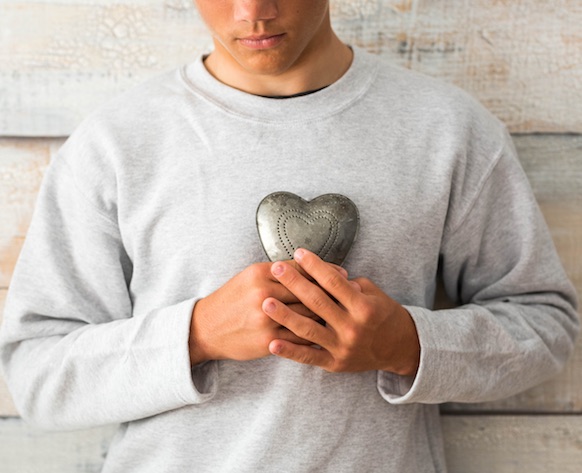How many us have suffered from IBS or some form of constipation or diarrhea at some point of time in our life? Too many, I am sure … more


After staying closeted up in our homes during the pandemic, we have realized one important thing about relationships – that we cannot live without them. No amount of money or success in career can help when it comes to personal support during an adverse situation.
Relational wellbeing or relational health pertains to interpersonal communication that builds good relations and promotes and develops empathy for each other. Relational wellbeing is not limited in scope to personal relationships either, it also helps nourish positive and supportive connections within communities and society at large.
Be it professional relations at your workplace or personal ties with family and friends, relational wellbeing can help foster lasting empathetic and supportive relationships.
When relations start deviating, we often resort to corrective measures by either making personal efforts or through external support from well-wishers such as friends, family, or professional colleagues. However, it may lead to psychological distress in our lives. That’s where relational wellbeing steps in. By taking active steps to balance our relationships we can avoid relational distress.
Relational wellbeing also improves our personal wellbeing, including our health, immune system, recovery times, and mortality.
Without relationships we would feel disconnected and alone in the world. Which, in turn, will impact our physical and mental health. But sometimes we disregard the significance of personal relationships due to personal or professional desires that supersede relationships.
People who are more connected with their family and friends lead much happier life and tend to do better professionally. They are also healthier and fitter in terms of physical and mental wellbeing.
From an early age, i.e., the childhood, relationships start influencing our behavior. We learn to connect and respond positively towards relationships. However, changes in family structure and nuclear living in cities has changed the way we think of relationships. Instead of having trusting bonds that last a lifetime, people have become more self-centered, leading to frequent breakups in personal and professional relationships.
Focusing on relational wellbeing can help restore the feeling of camaraderie and bring us out of isolation. Moreover, relational wellbeing can help mend broken relationships and improve the quality of our existing relationships, be they personal or professional.
As mentioned earlier, having stable and healthy relations is linked to good mental and physical health. There can be visible outcomes of having healthy relationships, like:
Healthy relations bring happiness and feeling of satisfaction. Such atmosphere doesn’t let stress hamper health. After all, a happier life is healthier life.

Again, since satisfactory relations keeps stress away, there are lesser chances of developing high blood pressure and other diseases related to depression and anxiety. Also, negative emotions sit in the heart and people who feel disconnected from the world may show signs of the Broken Heart Syndrome.

When a person falls ill, they may feel physically and emotionally weak. They can get better with right treatment and medication, but emotional support is also necessary for stronger recovery. When a patient knows that there are people to support and take care of them, there are better chances of recovering sooner as compared to someone who feels lonely during illness. That emotional part is handled by support from family, friends, and loved ones.

Stress due to professional unrest or bad personal relations can contribute to weight gain. It happens because people under stress are unable to take care of themselves, they resort to stress-eating and stay indoors more often. On the other hand, a happy person keeps healthy as they will show more interest in physical fitness and socializing.

Happy experiences with people around you or with a special someone send signals to your brain to release happy hormones like dopamine, adrenalin, and norepinephrine. The heart also beats and pumps blood faster, making the heart muscles healthier and stronger.

It’s never too late to start working on your relational wellbeing. There are several easy, self-help ways for doing that,
Relying on self-help approaches has very limited impact on grooming your social wellbeing. Online relational wellbeing programs are often self-centered and do not take a holistic overview of things. But since relationships are a personal matter, most people shy away from taking professional help before things become critical or too difficult to manage. It also happens due to lack of awareness or social taboo in closed, family-centric cultures, like ours.
Relational disability is just like any other distressful condition where one is not able to work on making his/her relations better with individuals or group of people. Relationship coaching is for people who are facing miscommunication, lack of communication, trust issues or stress. A health, wellness, and life coaching professional can help you break the cycle of bad relationships by identifying the underlying reasons affecting their advancement and geniality.
Here’s how your social wellbeing is engineered by a health, wellness, and life coach,




How many us have suffered from IBS or some form of constipation or diarrhea at some point of time in our life? Too many, I am sure … more

“Sometimes the terms stress and crisis are used interchangeably even though stress is actually a temporary or prolonged condition that requires people … more

Over the last few months as I sat in class, I often questioned how most of the eastern healing modalities practiced today really work. I have experienced some … more

Good health implies that your mind and body are in perfect harmony and healthy. The slightest misbalance in either of the two can lead to a variety … more

It is known to almost each one of us that stress has an impact on the overall health and wellbeing, yet most of us fail to take necessary action to prevent it … more

When you’re stressed out, the foods that you’re turning to are most likely going to be traditional ‘comfort’ foods – think big meals, take-out, fatty foods, … more